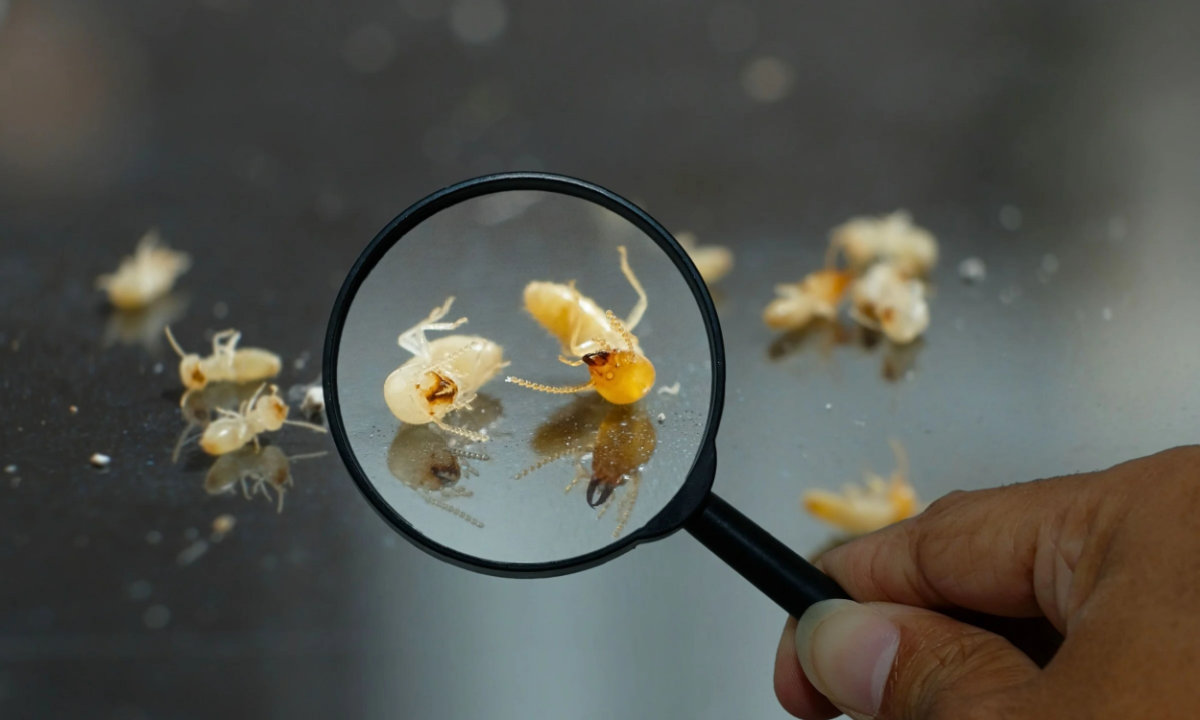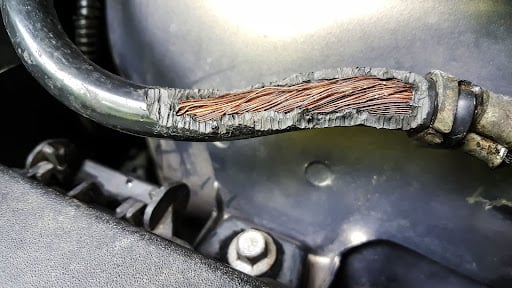Whether climbing up your legs, latched onto your pets, or merely scurrying across the ground, ticks are one of the most feared and troublesome pests. These blood-sucking arachnids are known to harbor several diseases, making finding even one a call to action.
This article will delve into everything you should know about ticks, from etymology to how to get rid of them.
What Are Ticks?
You may be tempted to refer to ticks as insects, though that’s a common misconception. Ticks are members of the arachnid class, along with several types of New Jersey spiders, including scorpions, mites, harvestmen, and sun spiders.
The primary difference between spiders and insects is their number of legs–arachnids have eight, while most insects have six.
Generally, there are three major tick species prevalent in New Jersey: the deer tick, the lone star tick, and the American dog tick. Unfortunately, all three species are known to transmit disease, making tick infestations far more dangerous than any regular nuisance pest.
For example, ticks are known to transmit various diseases, including:
- Lyme disease
- Rocky Mountain Spotted Fever
- Anaplasmosis
- Babesiosis
- Ehrlichiosis
Each disease presents uncomfortable side effects, with some even lingering for life.
Why Are Ticks in My Yard?
Ticks aren’t likely to travel long distances independently; they can’t fly, move slowly, and are extremely small when not engorged with a host’s blood. So how did they get into your yard?
Most likely, ticks migrated into your yard with the help of an infested wild animal like a deer, possum, squirrel, raccoon, bird, or even a lizard! They may also gain access to your home or yard through a family pet or hitch a ride on your clothes or body after a run or hike through a wooded area.
What Seasons Do Ticks Come Around?
While ticks can be active anytime the weather is above freezing temperatures, adults are typically most active between March and mid-May and mid-August to November. Nymphs, or juvenile ticks, generally are most active from mid-May to mid-August. Both nymphs and adults are capable of spreading disease.
Tips for Avoiding Ticks
With ticks posing such a threat to the health of you, your family, and your pets, doing your part to avoid them whenever possible is essential. Here are some tips to prevent tick encounters and bites.
Stay on the Trail
Ticks typically hide in dense, bushy, wooded, or grassy areas, hoping to reach an unsuspecting host to which they can attach themselves. For this reason, it’s always best to stay on clear paths when hiking, camping, or running.
The same rule applies to pets as well. Keeping your pet on a leash during walks, hikes, or runs in wooded areas is the best way to prevent a tick infestation.
Treat Outdoor Clothing
If you have a set of clothing or shoes that you usually wear to hike or exercise outdoors, try spraying them with a permethrin-based repellent. These chemicals can help repel any ticks you encounter, preventing them from latching to your clothes or skin.
Wear Long Clothing
While no one enjoys long clothing on a hot day, it may be the difference between receiving a tick bite or not. Long clothing forms a barrier between ticks and your skin, creating one more obstacle for ticks to get through.
Inspect Yourself and Your Pets Immediately After an Outdoor Activity
After partaking in an activity outdoors, immediately inspect yourself and your pets for ticks. Some ticks may not bite immediately, and several tick-borne illnesses require the tick to be attached to a host for 36-48 hours to pass the infection.
Due to the tick’s small size, it’s essential to inspect yourself and your loved ones thoroughly. Check under the arms, in and around the ears, inside the belly button, in hair, around the waist, near the ankles, and between the legs.
Shower Immediately
This step is often done in conjunction with inspecting yourself. Showering as soon as possible can rinse loose ticks off your body and out of your hair before they can latch on.
 Symptoms of an Untreated Tick Bite
Symptoms of an Untreated Tick Bite
If you miss a tick bite for an extended period, there are some side effects to keep an eye out for that may allude to a Lyme Disease infection. These include:
- Fever
- Headache
- Fatigue
- Chills
- Muscle and joint aches
- Flu-like symptoms
- Erythema migrans rash
If a tick has bitten you in the past 30 days and you are displaying any of these symptoms, you should bring it to the attention of a medical professional immediately.
How to Treat a Tick Bite
If a tick bites you, remove the pest immediately.
Unfortunately, thanks to their strong jaws, it’s nearly impossible to safely grab and remove the arachnid with a simple tug.
To effectively remove a tick, follow these steps.
- Locate the Necessary Tools. To remove a tick, you’ll need a pair of sharp tweezers and rubbing alcohol. Cleaning the area of the bite is critical to preventing infection, and the small-tipped tweezers are far more accurate than fingers or square-tipped versions.
- Clean the Affected Area. Before attempting to remove the pest, clean the immediate area to prevent infection.
- Remove the Tick. At this time, you can attempt removal. Grab the tick as close as possible to the skin, preventing ripping or squishing the pest. Pull upwards with steady yet gentle pressure. It may take some effort, but the tick will likely release its grip. Do NOT twist or wiggle, as this may leave portions of the tick’s mouthparts embedded in your skin, leading to infection.
- Clean the Affected Area Again. After successful removal, clean the area once more with rubbing alcohol to prevent infection.
After removal, you have two options–dispose of the tick or have it tested. To dispose of the tick, either:
- Drop it into a container of rubbing alcohol
- Flush it down the toilet
- Tightly wrap it in tape
Contact your local lab or government if you wish to have the tick tested.
Ways to Get Rid of Ticks in Your Yard
While preventing bites and other symptoms is valid, tackling an infestation at the source is always best. Here are some methods to treat ticks in your yard.
- Use a Tick Spray. While treating your yard with insecticides may not be your first choice, it’s an effective means of killing juvenile and adult ticks. Tick sprays are relatively affordable and can be safely applied around your property to prevent their entry.
- Apply Diatomaceous Earth. Diatomaceous earth is an excellent natural insecticide. You can sprinkle this powder throughout yards and near entry points of homes. When ticks pass through the powder, it scours their hide and causes dehydration, eventually leading to death. The product typically kills 12 hours after contact.
- Keep Your Yard Tidy. Ticks hide in leaf litter, overgrown grass, and unkempt bushes. As a result, one of the best treatments is to keep a clean and tidy yard. Doing so reduces hiding places and minimizes your and your pet’s chances of picking up the pests outdoors.
- Utilize Tick Tubes. Another solution is tick tubes; these outdoor treatments are packed with insecticide-treated cotton, which tick-infested rats and mice collect. The insecticide eventually leaches into the tick, causing death.
- Natural Sprays. Neem oil and Cedar oil are effective natural insecticides that are safe for pets and humans. Cedar oil is an excellent repellent–spraying it on affected areas will help to drive ticks from your yard. Neem oil is a natural contact killer–spray the substance anywhere you’ve noticed tick activity to eliminate the pests.
- Contact an Exterminator. If the above methods are less-than-effective, consider contacting a professional. Anchor Pest Control offers tick control for all species of ticks, including American dog tick control.
Ticks are a species of pest that no one wants in their home or yard. These blood-sucking arachnids are known to transmit several potentially dangerous diseases, making the sight of even one tick a call to action.
If you’ve noted an increase in ticks in your yard or on your pets, try the above methods to eradicate them. Otherwise, contact your trusted local pest experts at Anchor Pest Control if all else fails. Our experts can set you up with an effective treatment against ticks or any other common New Jersey pests.
We also offer flea and tick control as part of our Pest-Protect 365 plan for ongoing service, protecting against over 40 different species of pests.
How to Get Rid of Ticks FAQ
Are ticks dangerous?
Ticks are known vectors for several harmful diseases, including Lyme disease. As a result, treating a tick bite immediately and contacting your doctor may be necessary to stem any associated infection.
Where do ticks hide in my yard?
If you or your pet find ticks on themselves, it’s most likely because one of you passed through a thick brush. For the most part, ticks hide in leaf or grass piles, bushes, and tall grass.
What are the best ways to avoid ticks?
Avoiding ticks is relatively easy as long as you know their preferred hiding places and behaviors. Tips to prevent contact with these pests include:
- Staying on hiking paths and trails.
- Wearing long, protective clothing outdoors
- Treating clothing with a permethrin-based repellent.
- Showering immediately after returning home from an outdoor activity.
- Thoroughly inspect your body for ticks, including under the arms, between the legs, in and around the ears and hair, around the waist, and in the belly button.



